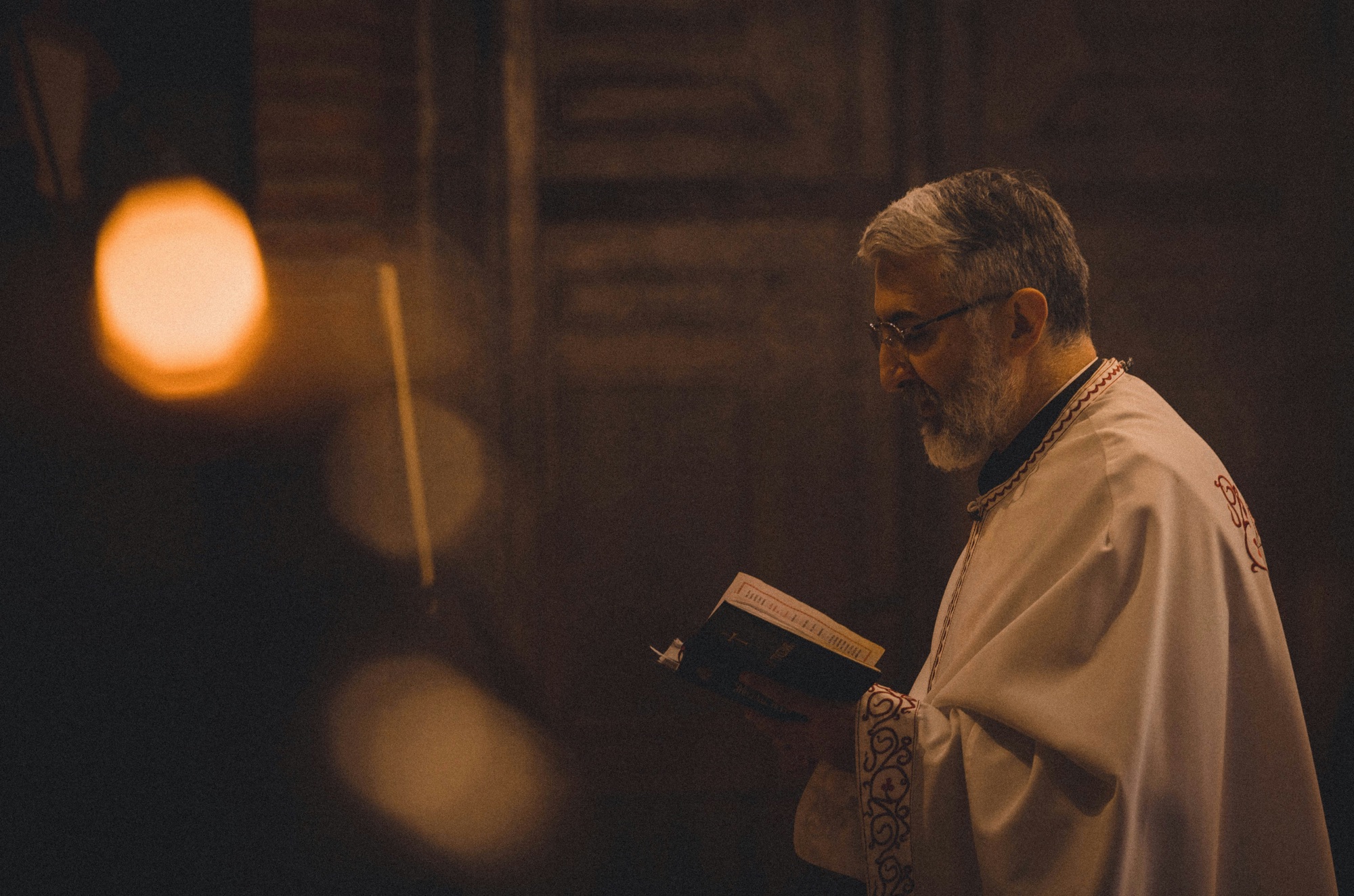When discussing the roles of pastors and priests, it’s crucial to understand that both serve as spiritual leaders within their respective faith traditions, yet there are distinct differences in their roles, responsibilities, and the contexts in which they operate. Pastors are typically leaders of Protestant Christian congregations, while priests are ordained clergy in the Catholic, Orthodox, and some Anglican denominations. A pastor’s authority is derived from the congregation and often serves as a spiritual advisor and preacher, guiding the faith community in matters of belief and practice. They also provide pastoral care and support to the members of their congregation, offering counseling and guidance in times of need. In contrast, a priest’s authority comes from the sacrament of ordination, which is believed to confer spiritual power and responsibilities. They have a more formalized role in leading worship services, administering sacraments, and upholding the teachings and traditions of their respective denominations.
Training and Education
Pastoral Training
A pastor may have formal theological education or may be a self-taught preacher, depending on the denomination. Some pastors attend seminaries or theological schools to receive training in biblical studies, theology, and pastoral care. For example, the United Methodist Church often requires a Master of Divinity degree from an accredited seminary. In addition to formal education, pastors may engage in ongoing education and professional development to enhance their ministry skills. This could include workshops on counseling techniques, leadership seminars, or courses on contemporary issues facing the church.
Practical Tip: Aspiring pastors should seek mentorship from experienced clergy to gain practical insights that aren’t covered in formal education. This can include shadowing a pastor to learn about day-to-day responsibilities and challenges.
Priestly Formation
In comparison, priests undergo years of rigorous training in seminaries before being ordained. This training is extensive and includes comprehensive studies in theology, biblical interpretation, liturgy, and pastoral care. The process can take several years, often culminating in a Master of Divinity or a similar degree. This training equips them with a deep understanding of the theological and doctrinal foundations of their faith tradition, as well as the practical skills needed to serve as spiritual leaders and guides for their communities.
Example: The Catholic Church requires priests to undergo a discernment process, which can take several years, where they are evaluated on their suitability for priesthood, followed by philosophical and theological education.
Sacramental Differences
Priests have the exclusive ability to administer certain sacraments, such as the Eucharist and Anointing of the Sick, due to their ordained status. The sacraments are considered sacred rituals that convey divine grace and mark significant moments in the life of a believer. Priests are seen as mediators between God and the faithful in the administration of these sacraments, which are central to the spiritual life of Catholic and Orthodox Christians.
Case Study: In the Catholic Church, the sacrament of confession is a vital aspect of spiritual life. A priest is required to hear confessions and grant absolution, a role that underscores their unique position as mediators of divine grace.
On the other hand, pastors in Protestant traditions do not have sacramental powers granted through ordination and may focus more on preaching and pastoral care within their congregations. While they may still perform rites like baptism and communion, these ceremonies are often viewed symbolically rather than as sacraments with inherent spiritual efficacy.
Practical Insight: Many Protestant churches have embraced a more communal approach to ceremonies like communion, where the focus is on fellowship and remembrance rather than sacramental grace.
Celibacy and Marriage
In many Catholic and Orthodox traditions, priests are required to practice celibacy, refraining from marriage and romantic relationships. This commitment to celibacy is seen as a way for priests to fully dedicate themselves to serving God and the church, without the distractions and obligations of a family life. It is believed to allow for a deeper spiritual focus and commitment to their pastoral duties.
Common Misconception: Some people believe that all clergy must remain celibate. However, this is largely specific to certain denominations, and there are exceptions even within these traditions, such as married priests in the Eastern Catholic Churches.
In contrast, pastors in Protestant denominations can be married and have families, as marriage is not seen as a hindrance to their pastoral duties. Some denominations even view marriage as a positive aspect of pastoral ministry, providing pastors with firsthand experience and understanding of family life, which can enhance their ability to relate to and support their congregants.
Role within the Church Hierarchy
Within the Catholic Church, priests are part of a hierarchical system that includes bishops, archbishops, and the pope. They serve specific roles within the church structure and must adhere to canon law, which governs the rules and regulations of the church. Priests report to their bishops and are assigned to parishes or other ministry roles based on the needs of the diocese. They collaborate with other clergy and lay leaders to fulfill the mission of the church and provide pastoral care to the faithful.
Example: A diocesan priest might be reassigned to different parishes throughout his career, depending on the needs of the diocese and the direction of the bishop.
Pastors, on the other hand, often have more autonomy within their congregations and may be part of a larger denominational structure but typically have less strict hierarchical oversight. They are accountable to the leadership of their denomination but have more flexibility in how they approach ministry and lead their congregations, adapting their methods to the unique needs and contexts of their communities.
Practical Example: A Baptist pastor might have the freedom to initiate new community outreach programs or modify worship styles to better suit the local congregation without needing approval from a higher church authority.
Community Engagement and Cultural Context
Priests and Community
Priests are often deeply embedded in the cultural and community life of their congregations. Their role often extends beyond church services to include involvement in community events, school functions, and local charities. In many cultures, the priest is seen as a community leader who offers moral guidance and support.
Case Study: In rural parishes, a priest might be the only spiritual leader available, making them a crucial part of the community’s social fabric, often involved in organizing community aid or local events.
Pastors and Community
Pastors also play a vital role in their communities, often emphasizing outreach and service. Many Protestant churches are heavily involved in social justice initiatives, disaster relief efforts, and community service projects. Pastors may encourage their congregations to engage with the local community through volunteer work and partnerships with local organizations.
Practical Tip: Pastors can enhance community engagement by organizing service days where congregants volunteer at local shelters, food banks, or other community organizations, thereby strengthening the church’s presence and impact in the community.
Theological and Liturgical Practices
Liturgical Roles
Priests are often seen as custodians of liturgical practices, responsible for maintaining the integrity and tradition of worship. In Catholic and Orthodox traditions, this includes leading the Mass, which is central to worship and involves a formal liturgical structure.
Example: During Easter, priests conduct special liturgies that include rituals such as the washing of the feet, which are steeped in tradition and symbolism.
Worship in Protestant Churches
Pastors in Protestant churches may have more flexibility in worship styles. Services can range from traditional hymns and sermons to contemporary worship with modern music and multimedia presentations. This flexibility allows pastors to tailor services to the preferences and needs of their congregations.
Practical Insight: A pastor might introduce a contemporary worship service on Saturday evenings to attract younger congregants or those who prefer a more modern worship experience.
Challenges and Opportunities
Challenges Faced by Priests
Priests often face challenges related to maintaining tradition while addressing contemporary issues. Balancing the expectations of the church hierarchy with the needs of the parishioners can be demanding. Additionally, the vow of celibacy can present personal challenges, requiring strong support networks and spiritual resilience.
Challenges Faced by Pastors
Pastors may encounter challenges in navigating the diverse expectations of their congregations, especially in non-denominational or multi-ethnic churches. They need to balance preaching, pastoral care, and administrative duties, often with limited resources.
Opportunity for Growth: Both pastors and priests can benefit from ongoing education and training in areas like conflict resolution and cultural competency to better serve their diverse congregations.
Personal Reflection and Spiritual Growth
Both pastors and priests are expected to foster their own spiritual growth and deepen their relationship with God. This personal journey is essential for them to effectively guide and support their congregations.
Practical Tip: Regular spiritual retreats can provide clergy with the time and space needed for reflection and renewal, ensuring they remain spiritually nourished and effective in their ministry.
Understanding the nuanced roles of pastors and priests can enrich our appreciation of the diverse ways in which spiritual leadership is practiced across Christian traditions. Both roles, though different, are united in their commitment to guiding believers in their faith journey.




